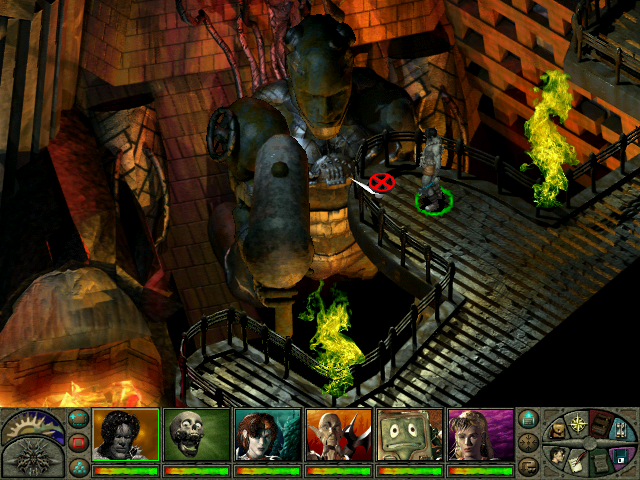You would want to give a similar amount of love to all the racial reactivity so that godlikes don't feel so much cooler to play as than everybody else. It's a little like PS:T's problem with certain attribute builds creating a much more satisfying narrative experience. You want to be even-handed.
[...]
One of the most frequent posts you'll see on our forums is "why no love for character build x?" The answer is usually some combination of a) there was love but you may have missed a big portion of it in your playthrough (side quests you didn't try, maps you never visited, etc.), and b) because every other possible character build choice needed to get some love, and they all compete with one another for resources. Overall in Pillars, there was a lot of time spent to try to give reactivity to all of the character choices, and viewed in aggregate, it's an impressive chunk of text. But because only a small fraction of that text will show up for a given character build, most players never get a sense of the breadth of reactivity that the game offers. My dialogue editor says we checked for godlike 56 times over the course of the game
Just read the interview yesterday. Thanks for taking the time to write out such thoughtful replies! Good questions
Infinitron, that's some of the Codex's best work. That being said... I think the first part of what I've quoted above isn't true and I'd like to provide some push-back against the notion that even-handedness produces great results.
Actually, I don't think being even-handed even produces memorable results. Yes, there are optimal PST character builds to extract the most story from the game. Still, the worst character builds in terms of narrative or gameplay experience, still result in a damn good story. I think there needs to be an imbalance, a dynamic range if you will, for there to be a chance at excellence. Why? Because of the second part of the quote that I've bolded, and because there will
never be a game with The Perfect Scheduling, The Perfect Amount of Content and Resources. Games have been this way forever, and by striving for balance, blandness results.
Practically I know you have to consider the fact that you can't serve players up a shitty narrative or a shitty experience. That's fine, make the "worst" narrative/gameplay/C&C experience a player can have acceptable, and their "best" exceptional.
My perception of this is that developers hear players complaining about missing out on content because they didn't have perfect knowledge and didn't do X, Y or Z. These developers, being the reasonable people that they are, think "hum, I can fix that". But there
is no problem to fix, rather that player's expression of frustration is the natural byproduct of someone seeing that they didn't have the same gameplay experience as someone else, and desiring it. That feeling
has to exist in some players when playing a game with challenge and C&C.
Look at some classic games, were they even-handed with the reactivity and gameplay experience? Fallout's low intelligence dialogue certainly has no other in-game cosmetic reactivity aspects that correspond to the amount of time it must have taken to implement it, or for such a game-changing player experience. It was imbalanced, and it was amazing. Did a sneaking small guns traps character have about the same experience as a speech, science and energy weapons character? Absolutely not, and again, the resulting diversity in gameplay benefitted from the relatively weakness of skills like traps, outdoorsman, sneak etc because characters built using those skills resulted in manifestly different gameplay experiences. Think of the the Malkavians dialogue in Bloodlines, that's another massively imbalanced piece of cosmetic reactivity (in terms of development time) that is consistently brought up as one of the best parts of the game.
In general, a completel lack of balanced gameplay experience has contributed to the longevity of a lot of classic RPGs, including Baldur's Gate 1 and IWD 1. Those games absolutely
punish the player for bad character development choices and not exploring the world. These classic games all have massive imbalances in terms of reactivity, narrative or gameplay experience, across player populations, and are adored. I can't think of a single RPG that that treated the player experience with even-handedness that is loved the way these other games are.
I think that the idea that even-handedness, balance, however you think of it - the idea that it improves RPGs is a fallacy.
/rant off, thanks again!






























